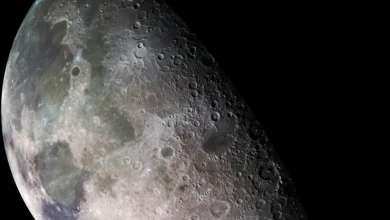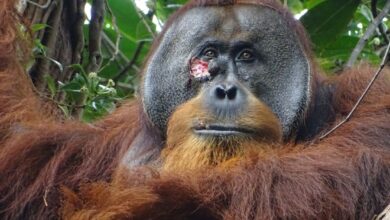Scientists rediscover human group previously thought extinct for decades: Report
Anthropologists worried that the inhabitants that spoke the extinct languages had also disappeared when they began to disappear in the Namib Desert of southern Africa. Experts have recently learned that these tribes' genetic identities may have persisted despite losing their original tongue. They are found today in Tanzania.

A community of people that was previously believed to have vanished has been rediscovered by a team of researchers.
Anthropologists worried that the inhabitants that spoke the extinct languages had also disappeared when they began to disappear in the Namib Desert of southern Africa. Experts have recently learned that these tribes’ genetic identities may have persisted despite losing their original tongues.
In a statement, Dr. Jorge Rocha of the University of Porto said, “We were able to locate groups that were once believed to have vanished more than 50 years ago.”
The Kwepe, who once spoke Kwadi, is one of these groups. It was believed that when the language vanished, their isolation from neighboring populations would come to an end.
According to Dr. Ann-Maria Fehn of the Centro de Investigaço em Biodiversidade e Recursos Genéticos, “Kwadi was a click language that shared a common ancestor with the Khoe languages spoken by foragers and herders across Southern Africa.”
The researchers were able to track down the descendants of the Kwadi speakers and found that they had maintained a genetic distinction dating back to a period when Bantu-speaking farmers settled in the region.
Dr. Sandra Oliverira of the University of Bern said, “A lot of our efforts were focused on understanding how much of this local variation and global eccentricity was caused by genetic drift – a random process that disproportionately affects small populations and by admixtures from vanished populations.”
Foragers from the Kalahari desert are descended from a group that split off from all other living humans initially, according to earlier research, said Professor Mark Stoneking of the Max Plank Institute for Evolutionary Anthropology.
However, they propose that the Namib-related ancestry separated from all other southern African ancestries, followed by a separation of the northern and southern Kalahari ancestries. “Our results consistently place the newly identified ancestry within the same ancestral lineage,” they write.
The study enabled the scientists to retrace the population movements in the area. Around 2,000 years ago, speakers of the Khoe-Kwadi language spread out throughout the region, presumably from what is now Tanzania.
As anthropologists discovered in this study, the tribes that originally spoke Kwadi before converting to Bantu languages represent the crucial missing link in the story of mankind.
According to Dr. Ann-Maria Fehn of the Centro de Investigao in Biodiversidade e Recursos Genticos, Kwadi was a click language that had a common ancestor with the Khoe languages spoken by South African pastoralists and foresters. Fehn was able to interview two survivors who were living at the mouth of the Kurokajoki who remembered a large portion of the language as part of the study.
the final two Kwadi speakers, the last members of a genetically preserved people whose language has vanished.
The team was able to regroup the migrations of the local inhabitants with the aid of the investigation. Around 2,000 years ago, Khoe-Kwadi speakers arrived in the region, presumably from modern-day Tanzania. They arrived quite late compared to the original people, who may have lived in the region for hundreds of thousands of years and spoke Khoe languages. The arrival of Bantu speakers from West and Central Africa was delayed by 200–500 years.
Bantu speakers are substantially less unique from the rest of humanity than the Khoe speakers who dwell in the area and share ancestry with the more well-known Kalahari. The study’s missing piece of the human jigsaw is populations that originally spoke Kwadi before switching to Bantu languages more recently.
Please, also a have look into : Human kidney in pig; will scientists pull it off?



